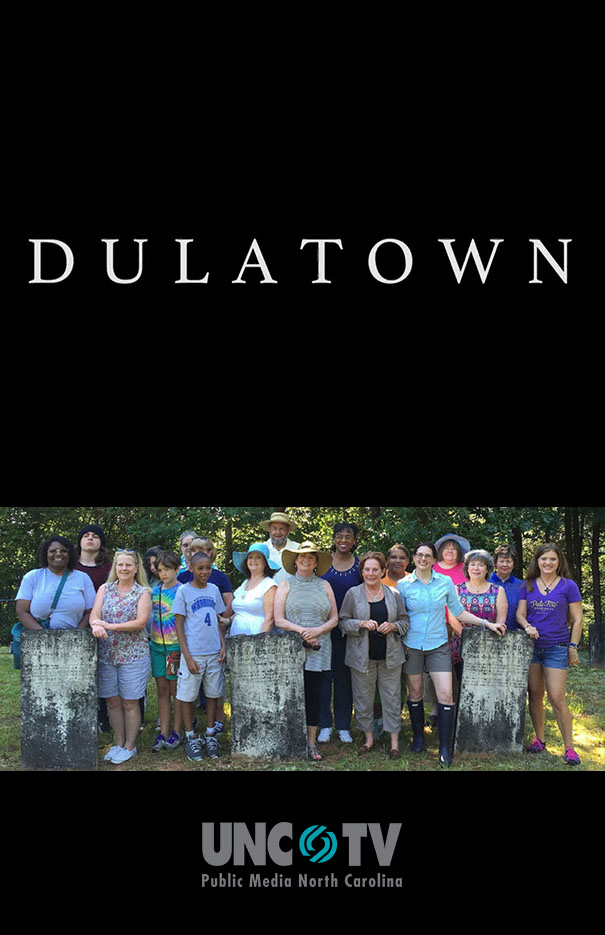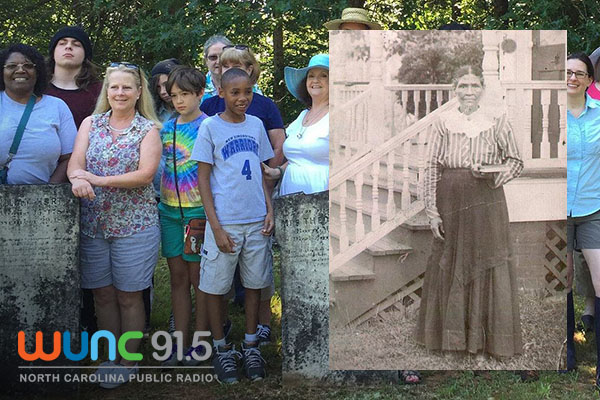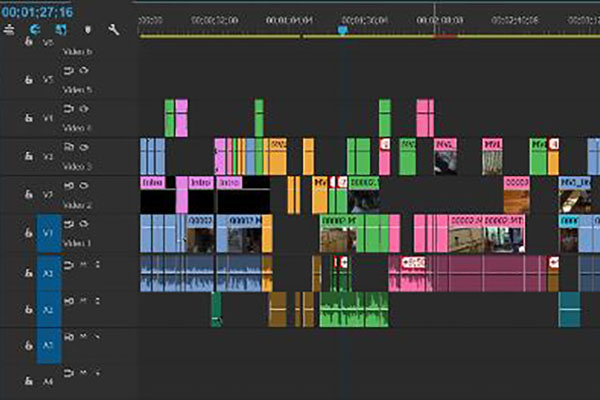
BOONE, N.C. — In the southwest corner of Caldwell County lies a community settled in 1855 and populated mostly by African Americans who share a kinship and the last name of Dula. The community’s genesis is uncommon because, in times past, most African Americans did not acquire land in the way that Dulatown’s ancestors gained theirs.
The story of Dulatown, located in the city of Lenoir, is the subject of a documentary produced by Appalachian State University faculty, staff and alumni that will air this week on UNC-TV. The town’s history is also chronicled in the book “Black and White: The Story of Harriet Harshaw and ‘Squire’ James Alfred Dula,” written by Dr. Leslie McKesson ’16, an adjunct instructor in the Reich College of Education (RCOE) at Appalachian.
McKesson, who is a direct descendant of the Dula family, narrates the story of Dulatown in the documentary produced by Dr. Beth Davison, professor in the Department of Interdisciplinary Studies and co-director of Appalachian’s University Documentary Film Services (UDFS).
The film focuses on how the extended Dula clan embraces its history at gatherings, where both African American and white Dula relatives come together around their shared genealogy.
Dr. Stephen McCreery, assistant professor in the Department of Communication, and Appalachian alumni Maleek Loyd ’18 and Adam Sheffield ’15 ’16 also assisted in the documentary’s production. Loyd owns and operates media production company Loyd Visuals along with his two brothers, and Sheffield is a digitization specialist in the university’s Belk Library and Information Commons.
Watch the Appalachian-produced “Dulatown” documentary on Vimeo. The film explores the history of Dulatown, located in Lenoir and established from land a slave owner (“Squire” James Alfred Dula) bequeathed to his slave (Harriet Harshaw) and their eight children.
The beginnings of Dulatown
Many of Dulatown’s residents are descendants of Harriet Harshaw, a woman born into slavery circa 1824. She was likely owned by Jacob Harshaw, who, according to McKesson, was probably also her white father, as suggested by DNA testing of their descendants.
According to McKesson, Harriet Harshaw was sold in 1846 to “Squire” Alfred Dula, who fathered eight of her 12 children. Although it was not uncommon for slave owners to have children with their slaves, the owners rarely, if ever, acknowledged enslaved children as their own or treated them as heirs. And yet, this is where the Dulatown story begins.
McKesson tells how Dula, a wealthy farmer, chose to divide his land among the six children he had with his wife, who died early in their marriage, and the children he fathered with Harriet Harshaw. Dula began giving land to Harshaw and her children before his death and reportedly gave over 2,000 acres to them through a combination of lifetime property transfers and his testamentary will.
“My will is that my executor shall use so much of my estate as shall be necessary even to the entire amount therefore in defending on behalf of said colored persons or any of their heirs,” Dula dictated in his will.
According to McKesson, Dula made an effort to protect the land bequeathed to Harshaw and her heirs by directing one of his white sons, Julius Dula, to revoke land given to his other white sons if they attempted to protest his will. Family legend says that one son objected and lost his property.
“We may never know the nature of their relationship,” McKesson said, speaking of whether a slave owner could ever have a consensual relationship with someone who is in bondage. However, she said apart from not knowing the nature of their relationship, it is known that Dula worked to educate Harshaw and her children, and he ensured that they could keep the land that would change their lives.
McKesson’s desire to write about her family’s history stemmed from stories her father shared throughout her life, stories passed down to him from his father and grandfather.
McKesson said her father told stories that conjured feelings of family pride for some and shame for others. He also collected documents to support those stories. He looked at public records and, over the years, gathered 20 boxes of official documents — including birth, marriage and death certificates, other legal artifacts and interviews — that supported an ancestral connection between black and white Dulas.
McKesson gave her father the book “Roots” while she was a student at the University of North Carolina at Chapel Hill. Her father eventually entrusted to her all 20 boxes of his research and asked that she commit to write the story of the Dula family’s history.
Approximately two decades later, in 2012, she began the work of writing her family’s history. She self-published the book in March 2013 and, expecting limited interest, McKesson purchased only 100 books — the first of which she gave to her father. McKesson has since ordered and distributed 500 copies.
She plans to update the Dulatown story by releasing a revised edition of her book that includes new revelations based on research, genetic testing and information gained from family connections through the Dula Facebook page, which currently has more than 1,300 members.
McKesson retired as dean of Western Piedmont Community College before joining the RCOE at Appalachian.
Listen to Davison speak about the production process for the Dulatown documentary on this episode of “The State of Things” radio show.
What do you think?
Share your feedback on this story.

About AppDocs
AppDocs at Appalachian State University supports documentary work grounded in collaborative local and global partnerships. Photography, film/video, audio and writing are used to capture and convey memory, life, research, theory and culture. Additionally, the program provides professional consultation to students, faculty and staff engaged in documentary projects; coordinates documentary workshops; and sponsors screenings of documentaries produced by App State faculty, staff and visiting filmmakers. AppDocs partners with the Appalachian Theater of the High Country to produce the annual Boone Docs Film Festival. Learn more at https://doc.appstate.edu.
About University College
Formed in 2007, University College consists of the university’s general education program, faculty and student support, and co-curricular programming and support – all designed to support the work of students both inside and outside the classroom. All students at Appalachian begin their education in University College and benefit from its programs until they graduate. Learn more at https://universitycollege.appstate.edu.
About Appalachian State University
As a premier public institution, Appalachian State University prepares students to lead purposeful lives. App State is one of 17 campuses in the University of North Carolina System, with a national reputation for innovative teaching and opening access to a high-quality, cost-effective education. The university enrolls more than 21,000 students, has a low student-to-faculty ratio and offers more than 150 undergraduate and 80 graduate majors at its Boone and Hickory campuses and through App State Online. Learn more at https://www.appstate.edu.






![How NCInnovation Is Rethinking Economic Development in North Carolina [faculty featured]](/_images/_posts/2026/02/rethinking-economic-development-600x400.jpg)







